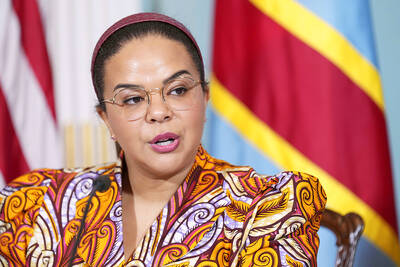The Israeli military has admitted that it lied about a rocket attack on a Gaza refugee camp, which according to the army led to no casualties, but which Palestinians have claimed killed 14 civilians.
A leftwing member of the Israeli parliament, Yossi Sarid, forced the confession from the air force chief after he threatened to release evidence that the military had used a weapon more destructive and indiscriminate than it had publicly claimed.
A month ago, the air force launched an assassination strike against a Hamas activist who was driving through Nuseirat refugee camp. The Palestinians claimed that the attack caused a large number of civilian casualties, but the air force commander, Major General Dan Halutz, produced video footage of the car being hit by two missiles that showed no one standing near the wrecked vehicle as the rockets struck.
The military said that Hellfire missiles were used, producing a concentrated explosion over a small area. General Halutz likened the effect of the missiles to "two grenades." The video footage was widely shown on Israeli television.
But the army now admits that it lied in briefings to the Israeli and foreign press, because the second rocket was not a Hellfire missile.
The military refuses to identify the weapon used, on the grounds of "operational security." But the speculation is that it was an American-made Flechette, which is illegal under international law because it fires thousands of tiny darts over hundreds of meters, causing horrific injuries. Israel has used similar weapons in Gaza in the past.
A political source said the air force had also admitted that the weapon was not fired from an Apache helicopter as it had originally claimed. The source said the information raised the possibility that the Israelis were using a new type of aircraft or weapon.
Evidence from the attack scene indicated that the second missile exploded in the air, not on impact, suggesting an intention to cause casualties in a wide area instead of just destroying the vehicle.
The truth began to emerge a fortnight ago when Sarid, a Meretz party MP, asked the defense minister, Shaul Mofaz, in a parliamentary hearing, what kind of ammunition was used in the attack on Nuseirat.
Mofaz refused to answer.
Sarid said that he had obtained information that the missiles were not, as the military claimed, small explosives. He threatened to go public with the information if questions on the issue were evaded.
The military reportedly tried to prevent him discussing the issue. But he said: "I will not allow anyone to gag me."
In an attempt to stave off further revelations, General Halutz met Sarid on Wednesday.
The general admitted that the military had lied, but tried to persuade the MP that the missiles could not have caused large numbers of casualties.
Afterwards the military released a statement, saying: "For reasons of securing information and for operational reasons, it was not possible to state completely events at Nuseirat.
"In any case, the version shown and the explanation given regarding those hurt in the action, along with the reams of video footage, are correct," he said.
Sarid is unconvinced and is still threatening to go public with the information he has.

STEPPING UP: Diminished US polar science presence mean opportunities for the UK and other countries, although China or Russia might also fill that gap, a researcher said The UK’s flagship polar research vessel is to head to Antarctica next week to help advance dozens of climate change-linked science projects, as Western nations spearhead studies there while the US withdraws. The RRS Sir David Attenborough, a state-of-the-art ship named after the renowned British naturalist, would aid research on everything from “hunting underwater tsunamis” to tracking glacier melt and whale populations. Operated by the British Antarctic Survey (BAS), the country’s polar research institute, the 15,000-tonne icebreaker — boasting a helipad, and various laboratories and gadgetry — is pivotal to the UK’s efforts to assess climate change’s impact there. “The saying goes

Floods on Sunday trapped people in vehicles and homes in Spain as torrential rain drenched the northeastern Catalonia region, a day after downpours unleashed travel chaos on the Mediterranean island of Ibiza. Local media shared videos of roaring torrents of brown water tearing through streets and submerging vehicles. National weather agency AEMET decreed the highest red alert in the province of Tarragona, warning of 180mm of rain in 12 hours in the Ebro River delta. Catalan fire service spokesman Oriol Corbella told reporters people had been caught by surprise, with people trapped “inside vehicles, in buildings, on ground floors.” Santa Barbara Mayor Josep Lluis

Police in China detained dozens of pastors of one of its largest underground churches over the weekend, a church spokesperson and relatives said, in the biggest crackdown on Christians since 2018. The detentions, which come amid renewed China-US tensions after Beijing dramatically expanded rare earth export controls last week, drew condemnation from US Secretary of State Marco Rubio, who on Sunday called for the immediate release of the pastors. Pastor Jin Mingri (金明日), founder of Zion Church, an unofficial “house church” not sanctioned by the Chinese government, was detained at his home in the southern city of Beihai on Friday evening, said

SANCTIONS: Congolese Minister of Foreign Affairs Therese Kayikwamba Wagner called on the EU to tighten sanctions against Rwanda during an event in Brussels The Democratic Republic of the Congo (DR Congo) has accused the EU of “an obvious double standard” for maintaining a minerals deal with Rwanda to supply Europe’s high-tech industries when it deployed a far-wider sanctions regime in response to the war in Ukraine. Congolese Minister of Foreign Affairs Therese Kayikwamba Wagner urged the EU to levy much stronger sanctions against Rwanda, which has fueled the conflict in the eastern DR Congo, describing the bloc’s response to breaches of the DR Congo’s territory as “very timid.” Referencing the EU’s response to Russia’s invasion of Ukraine, she said: “It is an obvious double standard